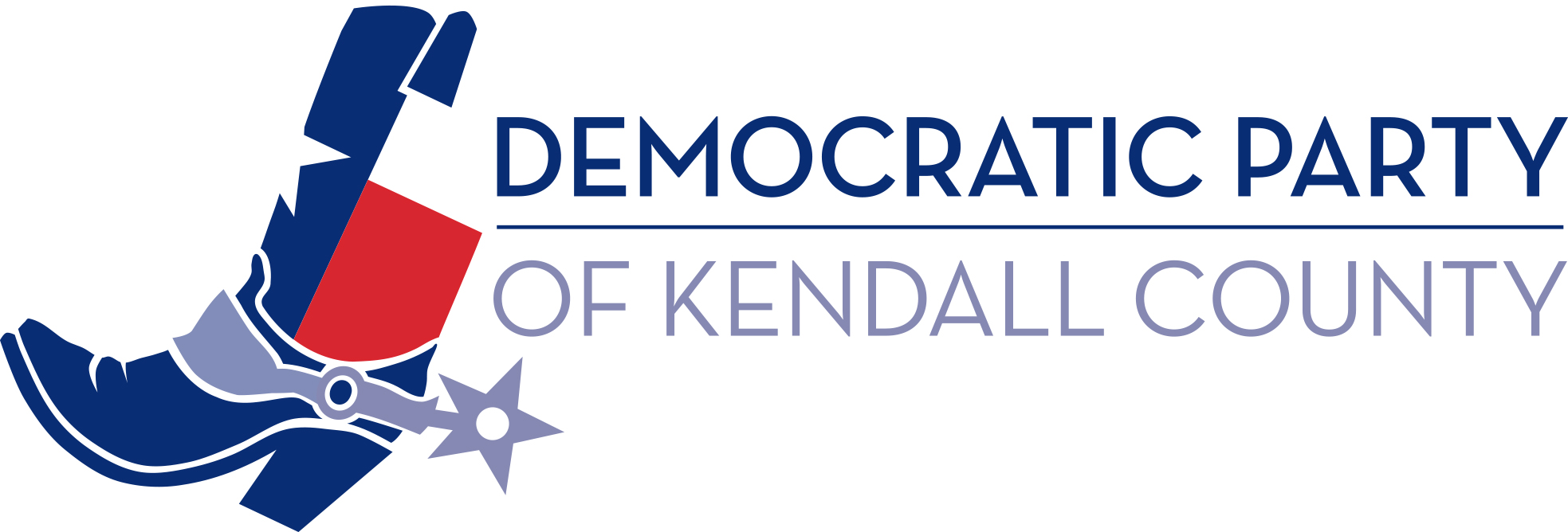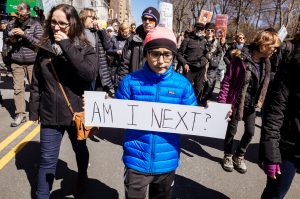by Luke Rosenberger
for the “Progressive Views” column, Boerne Star, October 18, 2019
Este comentario también está disponible en español.

On August 3, a terrorist left Dallas headed for El Paso with the intent — as he later confessed to investigators — of “killing as many Mexicans as possible.” The authorities now believe that a document, which appeared online minutes before the attack in which he killed 22 people and left 24 injured, was written by the terrorist to explain his motivations. The document is replete with typical white supremacist arguments, complaining of “ethnic displacement” and racial mixing, and referring to immigrants to the United States as “invaders.”
Another document, published one day before the attack, has concerning similarities with the terrorist manifesto. It is a letter dated August 2, sent by the campaign of Texas governor Greg Abbott to raise funds, which implores supporters to “DEFEND TEXAS NOW” against immigration and its political consequences, and “take matters into our own hands.”
One week after that letter was revealed to ample public condemnation, Abbott declared in a press conference: “I did have the opportunity to visit with the El Paso [Congressional] delegation and help them understand that [long pause] mistakes were made and course correction has been made.”
“Mistakes were made.” It’s a phrase that we hear too often from powerful people who want to respond to failures without taking any responsibility. It’s an attempt to appease, approximating an apology without recognizing fault, as though the mistakes had neither a past, nor sources, nor consequences.
But they have a long list of them. Lieutenant Governor Dan Patrick has campaigned on “the silent invasion of the border” (2006) and “to stop the invasion” (2014). In a 2018 campaign event for Senator Cruz, President Trump referred to immigration as “an assault on our country.” And we hear the echoes every day, from those who characterize entire populations of inferior morality, of violation and criminality, those who criticize people for speaking a language they don’t want to understand, and those who tell people of color to go back to their country without recognizing that they’re already in it.
And we feel the consequences every day, in the sadness and anxiety of our friends and loved ones, in the exhaustion of keeping spirits up to carry on, in the injustice and cruelty of discriminatory policies, and in the blood like our own running down the aisles of a Walmart on a Saturday afternoon.
But those are the short-term consequences; other longer-term consequences are starting to become visible. Voto Latino reported an increase of 254% in Latino voter registration between 2014 and 2018. A US Census Bureau report found that Latino participation in the 2018 elections increased 13.4% over 2014, an increase that was greater than other ethnic groups. By 2020, the Latino population eligible to vote in the United States will be greater than any other non-white group, and in Texas, more than 200,000 young Latinos turn 18 every year, of whom 95% are citizens.
So no need to tell us “mistakes were made” — we’ve been counting them for a while now. But as long as our leaders fail to accept their responsibility to elevate the national rhetoric, to reject racial supremacy, and look out for the rights of others, Latinos — and all of us who repudiate these ongoing “errors” of hate — will take up the task of “course correction,” making sure that the voice of every citizen is heard in the 2020 elections.


